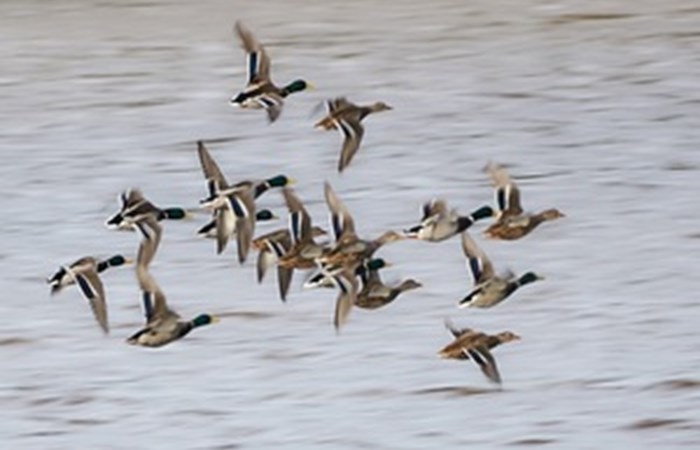Animal Plant Health Agency

Contents:
- Latest situation
- All bird flu cases and disease zones
- Bird flu guidance
- Bird gatherings
- Vaccines
- Latest GOV.UK news stories
- Risk levels and outbreak assessments
- Wild birds
- Wild mammals
- Bird flu webinars
- Defra policies and contingency plans
- Bird flu legislation
Latest situation
Take action to prevent bird flu and stop it spreading and be vigilant for signs of disease to keep your birds safe from avian influenza.
In the United Kingdom, the following number of cases of highly pathogenic avian influenza (HPAI) have been confirmed since 1 October 2023:
- 3 cases in England (297 since October 2021)
- 2 cases in Scotland (51 since October 2021)
- 0 cases in Wales (15 since October 2021)
- 0 cases in Northern Ireland (7 since October 2021)
There was one confirmed case of low pathogenic avian influenza (LPAI) H7N3. This case was confirmed in Scotland on 20 March 2023.
Check if youre in a bird flu disease zone on the map.
If youre in a bird flu disease control zone you must follow the rules for that zone and check if you need a licence to move poultry, poultry by-products, eggs, material or mammals.
Practicing good biosecurity at all times protects the health and welfare of your birds and for commercial keepers will help protect your business from HPAI and other diseases.
Find out what you can do to prevent bird flu and stop it spreading and how to spot and report suspicion of avian influenza in poultry or other captive birds.
Update 5 December
Highly pathogenic avian influenza (HPAI) H5N1 was confirmed in commercial poultry on 9 November 2023 at a premises near Donington, South Holland, Lincolnshire (AIV 2023/55). Following successful completion of disease control activities and surveillance within the zone, the 3km protection zone has been lifted and the area that formed the protection zone becomes part of the surveillance zone.
Update 29 November
Highly pathogenic avian influenza (HPAI) H5N1 was confirmed in commercial poultry on 29 November 2023 at a premises near Cranbrook, East Devon, Devon (AIV 2023/58). A 3km protection zone and a 10km surveillance zone have been declared around the premises.
Update 27 November
Highly pathogenic avian influenza (HPAI) H5N1 was confirmed in commercial poultry on 27 November 2023 at a premises near Wooler, Berwick-Upon-Tweed, Northumberland (AIV 2023/57). A 3km protection zone and a 10km surveillance zone have been declared around the premises.
All bird flu cases and disease control zones
Find details of all bird flu cases and disease zones in England.
Find details of bird flu cases in Scotland, cases in Wales and cases in Northern Ireland.
Bird flu guidance
Find out how to:
- spot and report bird flu in poultry and other captive birds
- report dead wild birds
- prevent bird flu and stop it spreading
- follow the rules in disease zones
- check if you need a movement licence and how to apply
- house your birds safely
- follow the rules if you keep racing pigeons, birds of prey and other captive birds
You can read guidance about how to keep other pets safe from bird flu, such as cats and dogs.
Bird gatherings
From 23 August 2023 gatherings of galliforme poultry and galliforme birds including gatherings of chickens, turkeys, pheasants, partridge, quail and guinea fowl are permitted. You need to follow the requirements of the poultry gathering general licence and notify the Animal and Plant Health Agency (APHA) at least 7 days before the event.
Gatherings of anseriforme poultry and anseriforme birds including ducks, geese and swans are not permitted.
These changes only apply to gatherings of galliforme poultry and galliforme birds held in England. Galliforme birds from premises located in Wales and Scotland are not permitted to attend galliforme gatherings in England.
You can read the risk assessment on the likelihood of spread of highly pathogenic avian influenza H5N1 associated with bird fairs, shows, markets, sales and other gatherings.
Vaccines
You cannot vaccinate poultry or most captive birds against bird flu in England.
You can only vaccinate zoo birds in England if you meet eligibility criteria and get authorisation from APHA. Only zoos or collections holding a current zoo licence can apply for vaccination.
Defra continues to invest in bird flu research and monitors the situation globally.
We work with the Veterinary Medicines Directorate (VMD) to monitor the development of vaccines for birds.
Latest GOV.UK news stories
Bird keepers must maintain scrupulous biosecurity standards as housing measures set to be lifted.
Risk levels and outbreak assessments
The risk of highly pathogenic avian influenza (HPAI) H5 in wild birds in Great Britain is assessed as medium (event occurs regularly).
The risk of poultry exposure to HPAI H5 in Great Britain is assessed as:
- low (event is rare but does occur) (with high uncertainty) where there are substantial biosecurity breaches and poor biosecurity
- low (event is rare but does occur) (with low uncertainty) where good biosecurity is ap
